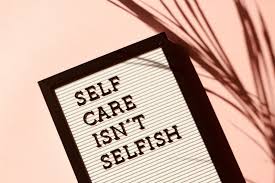If you have ever been in a situation where you were so worried that something bad was going to happen, you may have been experiencing hypervigilance. This is a type of anxiety disorder that causes people to be excessively aware of their surroundings and constantly on the lookout for potential threats. For people with hypervigilance OCD, this can be a debilitating condition that significantly affects their quality of life. In this blog post, we will discuss what hypervigilance OCD is, its symptoms, and how it can be treated.
Contents
What Is Hypervigilance OCD?
 Hypervigilance is a state of increased alertness. It may be a normal response to a perceived threat or danger. But for people with OCD, hypervigilance is an excessive and unreasonable form of worry and fear. People with hypervigilance OCD are constantly on the lookout for threats, real or imagined. They’re in a state of high alert and often feel on edge.
Hypervigilance is a state of increased alertness. It may be a normal response to a perceived threat or danger. But for people with OCD, hypervigilance is an excessive and unreasonable form of worry and fear. People with hypervigilance OCD are constantly on the lookout for threats, real or imagined. They’re in a state of high alert and often feel on edge.
They may be afraid of being attacked, harmed, or kidnapped. Or they may worry about natural disasters, such as earthquakes or tsunamis.
Both hypervigilance and OCD are also used to describe a range of other related conditions, such as post-traumatic stress disorder (PTSD), anxiety, and depression. They can also occur individually as a stand-alone condition. It is believed that hypervigilance OCD develops as a result of trauma or stress.
According to studies, hypervigilance OCD is more common in women than men. It is also more common in people who have a family history of OCD or other mental health conditions. So if you are struggling with hypervigilance OCD, know that you are not alone. There is help available.
Symptoms of Hypervigilance OCD
The symptoms of hypervigilance OCD can vary from person to person. But there are some common symptoms that people with this condition may experience, including:
Constantly being on edge
It is one of the common symptoms of hypervigilance OCD. People with this condition are always on the lookout for potential threats, even when there is no real danger present. For example, they may be constantly checking the locks on their doors or windows, even though there is no reason to believe that someone is trying to break into their home.
Being easily startled
People with hypervigilance OCD may also be easily startled by sudden noises or movements. This is because their nervous system is always on high alert, which can make them feel jumpy and anxious. Also, it is not uncommon for people with this type of OCD to have trouble sleeping due to their constant state of alertness.
Experiencing anxiety and fear
Another common symptom of hypervigilance OCD is feeling on edge all the time. This can make it hard to relax or even sleep. People with hypervigilance OCD may also startle easily and have a hard time concentrating. Moreover, they may avoid situations that make them feel anxious. For example, if someone with hypervigilance OCD might be afraid of driving, they may avoid getting behind the wheel.
Physical symptoms
It is believed that people with OCD are more likely to experience physical symptoms such as:
- muscle tension
- headaches
- fatigue
- insomnia
- gastrointestinal problems
These symptoms can be a result of the constant worry and stress that is associated with OCD. In fact, it is not uncommon for people with OCD to also suffer from anxiety and depression. Physical symptoms can be managed with medication and therapy.
Mental symptoms
 It is one of the mental symptoms associated with post-traumatic stress disorder (PTSD), however, it can also occur in other anxiety disorders. Individuals who experience hypervigilance OCD often feel on edge, as if they are constantly in danger. They may be jumpy or easily startled, and have difficulty relaxing or sleeping. It can have a significant impact on daily life, making it difficult to concentrate or complete simple tasks.
It is one of the mental symptoms associated with post-traumatic stress disorder (PTSD), however, it can also occur in other anxiety disorders. Individuals who experience hypervigilance OCD often feel on edge, as if they are constantly in danger. They may be jumpy or easily startled, and have difficulty relaxing or sleeping. It can have a significant impact on daily life, making it difficult to concentrate or complete simple tasks.
It is important to remember that you are not alone in this. There are many people who suffer from OCD and there are treatments available that can help you manage your symptoms. If you think you may have OCD, please consult a mental health professional for an evaluation.
What Are The Causes And Risk Factors?
There are many different theories about the causes of OCD, but no one really knows for sure what causes it. Some experts believe that OCD may be caused by a combination of genetic and environmental factors. Let’s explore some of the main causes and risk factors for OCD:
Genetics
If you have a family member with OCD, you may be more likely to develop the disorder yourself. This suggests that there may be a genetic component to OCD. It has been studied that first-degree relatives of people with OCD are about seven times more likely to develop OCD than the general population. For example, if your parent has OCD, you have about a 35% chance of developing OCD yourself.
Environment
It’s also believed that certain environmental factors may play a role in the development of OCD. For example, children who experience trauma or abuse are at an increased risk of developing OCD. Other stressful life events, such as the death of a loved one, may also trigger OCD. Because this is one of the most common mental health disorders, it’s important to be aware of the symptoms and seek treatment if you think you may have OCD.
Brain Structure and Functioning
There is also evidence that suggests OCD may be caused by differences in the structure and function of the brain. People with OCD have been found to have different levels of certain chemicals in their brains, as well as changes in brain activity. These differences may make people with OCD more likely to experience anxiety and fear, which can lead to the development of OCD symptoms.
Other risk factors
It is important to know that the causes of OCD are not fully understood, but there are certain risk factors that may contribute to the development of this disorder. Some of these include:
- Having another mental health disorder, such as anxiety, depression, or Tourette’s syndrome
- Previous history of schizophrenia or PTSD
- Feeling trapped in claustrophobic
- Abandonment
- Emotional stress or physical pain
These are some of the common risk factors that may contribute to the development of hypervigilance OCD. It is important to understand that not everyone who experiences these risk factors will develop the disorder. If you are concerned about your risk of developing OCD, please talk to a mental health professional. They can provide an accurate diagnosis and appropriate treatment.
How Does It Impact Everyday Life?
 Hypervigilance OCD is characterized by an excessive focus on potential threats. This can lead to significant distress and difficulty functioning in daily life. Some of the common consequences include:
Hypervigilance OCD is characterized by an excessive focus on potential threats. This can lead to significant distress and difficulty functioning in daily life. Some of the common consequences include:
Difficulty concentrating or completing tasks
This is one of the most common symptoms of hypervigilance OCD. When you’re constantly on the lookout for potential threats, it’s difficult to focus on anything else. This can make it hard to complete even simple tasks. In fact, it is believed that this symptom is one of the main reasons why people with hypervigilance OCD often have difficulty holding down a job.
It is not uncommon for people with hypervigilance OCD to isolate themselves from others. They may avoid social situations or activities out of fear that something bad will happen. This can lead to feelings of loneliness and isolation. Also, mental disorders can cause people to withdraw from social activities and relationships.
Difficulty sleeping
People with hypervigilance OCD often have difficulty sleeping. This is because they are constantly on the lookout for potential threats. This can lead to fatigue and other problems. For example, in this OCD you might be afraid of sleeping because you think something might happen to you while you are asleep. You might also have trouble concentrating during the day because you are so tired.
Excessive worry and anxiety
Excessive worry and anxiety are the main symptoms of hypervigilance OCD. People with this condition are always on the lookout for danger, and they often feel like they need to be on constant alert. This can lead to sleep problems, fatigue, and difficulty concentrating. People with hypervigilance OCD may also have other anxiety disorders, such as panic disorder or social anxiety disorder.
Avoidance of certain activities or situations
It is believed that people with hypervigilance OCD experience a heightened sense of danger and threat. They may avoid activities or situations that they believe could be dangerous, such as driving, flying, or even going outside. This avoidance can have a significant impact on their quality of life and may prevent them from doing things they enjoy.
These negative impacts can be compounded by the fact that people with hypervigilance OCD often feel like they are not being taken seriously by others. This can lead to feelings of isolation and loneliness. There are several resources where you can get help if you or someone you know is struggling with hypervigilance OCD.
How To Treat It?
Treatment for hypervigilance OCD will typically involve a combination of medication and therapy. Also, there are several types of therapy and medication so you have options to consider. In general, people with OCD respond well to a type of therapy called exposure and response prevention (ERP). Let’s discuss some of the common and effective treatment options for this.
Exposure and response prevention
 ERP is considered the first-line treatment for OCD. It involves gradually exposing yourself to the thoughts, images, objects, or situations that trigger your OCD. As you do this, you learn to control your anxiety and urges. You may also be asked to not engage in rituals or compulsions (the behaviors that help relieve your anxiety).
ERP is considered the first-line treatment for OCD. It involves gradually exposing yourself to the thoughts, images, objects, or situations that trigger your OCD. As you do this, you learn to control your anxiety and urges. You may also be asked to not engage in rituals or compulsions (the behaviors that help relieve your anxiety).
This process can take some time, but it is often very successful in treating OCD. In fact, research has shown that about 70% of people with OCD who receive ERP improve. It mainly aims at helping people confront their fears and learn to cope with the anxiety that comes with them.
Cognitive behavioral therapy
CBT is relatively a shorter process as compared to other forms of therapy and it is also very structured. The therapist will help you understand your thoughts and feelings better. You will also be taught how to change the way you think and behave in certain situations. Moreover, in this, a therapist focuses on the present rather than the past.
For example, if you are afraid of flying, the therapist will help you understand your fear better and also challenge your thoughts about it. You will be taught how to control your anxiety in a healthy way so that it does not take over your life. CBT has been found to be very effective in treating OCD and it is one of the most recommended forms of therapy for various mental disorders.
Medication
There are several types of medication that can be used to treat OCD. The most common are antidepressants, which are often effective in treating OCD. However, they can take several weeks or even months to work. Other medications that have been used to treat OCD include anti-anxiety medications, antipsychotics, and beta-blockers.
It is believed that medication can cause several side effects so it is important to consider all options before deciding on a course of treatment. Also, you should discuss all other things before starting any medication with your doctor. Everyone is different and will respond to medication differently.
Join a support group
Support groups are a great way to meet other people with OCD and learn from their experiences. Many people find it helpful to talk to others who understand what they’re going through. There are many online and in-person support groups available. To find a support group suitable to your condition, you have to research and shortlist a few.
Once you’ve found the right one, make sure to attend regularly and participate in discussions. Because support groups can offer you a sense of community and belonging, which is essential in your journey to recovery. There are also many helpful books and articles about OCD that you can read. But make sure to consult with your doctor or therapist before starting any treatment.
Self-help tips
 Although it may not be easy, there are things you can do to help yourself if you have hypervigilance OCD. So here are a few tips to help you in your journey to recovery:
Although it may not be easy, there are things you can do to help yourself if you have hypervigilance OCD. So here are a few tips to help you in your journey to recovery:
- Educate yourself about hypervigilance OCD. The more you know about your condition, the better equipped you will be to deal with it.
- Identify your triggers. What are the things that set off your hypervigilance? Once you know what they are, you can try to avoid them or be prepared for them when they do occur.
- Challenge your thoughts. When you find yourself getting caught up in worries, take a step back and ask yourself if there is really any evidence to support them. Most likely, there isn’t.
- Practice relaxation techniques. This can help you to calm your mind and body when you are feeling anxious.
- Keep a journal. Journaling can be a helpful way to track your thoughts and progress. You can try writing down your thoughts and then challenging them, or writing about things that make you feel calm and peaceful.
- Talk to someone who understands. It can be helpful to talk to someone who knows what you’re going through. This could be a friend, family member, therapist, or support group.
Hypervigilance OCD can be a difficult condition to deal with, but there are things you can do to help yourself. So don’t give up hope and keep fighting for your recovery.
Conclusion
To conclude, hypervigilance OCD is simply when someone experiences heightened vigilance and anxiety in response to a perceived threat. This can manifest in a number of different ways, such as constantly checking for danger, being on edge all the time, or avoiding certain situations altogether. While it can be extremely debilitating, there are treatment options available that can help lessen the symptoms and allow sufferers to live relatively normal lives.
If you think you may be suffering from this disorder, please reach out to a mental health professional for help. You can also contact Therapy Mantra for more information and resources. We have a team of professional therapists who can provide you with the support and guidance you need to recover from this condition. Contact us today to learn more about our services. You can also book an online therapy or download our free OCD treatment app on Android or iOS.


